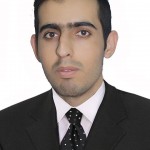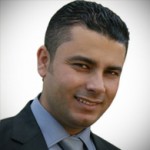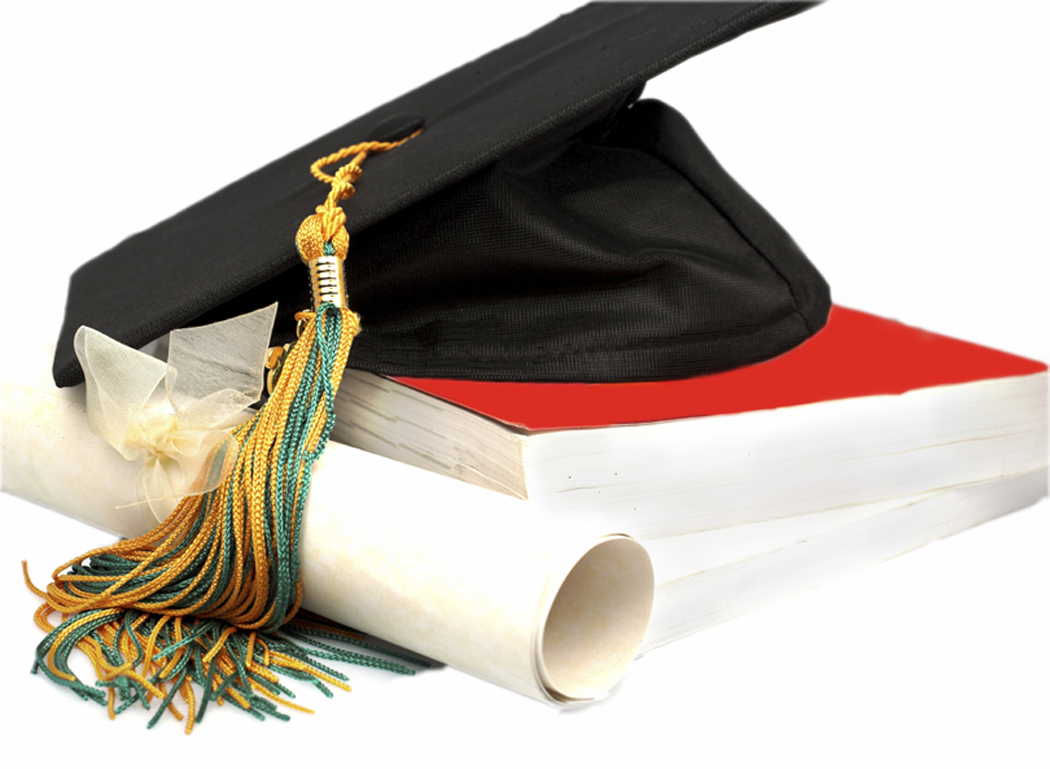Interview by Aras Ahmed Mhamad
1. AA: Student, teacher, and curriculum: How do you look at this triangle? Which one is more central to education?
MK: Teachers and their curricula go hand in hand towards the students. A method of teaching and curriculum affect the students’ achievement too much, but still the student is the center of the process of learning.
Methods of teaching are of twoapproaches: the first is the teacher-centered-approach in which the direct instruction is the dominant process. This approach has a negative point. It yields completely passive students. In this approach to instruction, teachers look for the method that is most beneficial for all of their students wanting to control the class and make it more enjoyable.
Furthermore, the teacher teaches at one level ignoring those students who are faster or lower than the normal students. This approach soon becomes bored to the students. Additionally, the working alone of the students does not allow them to collaborate with other students and they suffer from communication skills.
In contrast, the second approach is the student-centered-approach in which experiments and discoveries overwhelm the class and students get interested. Manipulating the second approach, students and teachers share the focus. Students and teachers interact equally. Students collaborate and communicate successfully with one another. However, the class gets noisy and the teacher cannot manage all the class activities because different students work on the same project differently.
In most cases, a combination of the two approaches is all students’ needs and must be met. In this case, the advantages of these two approaches are met.
2. AA: What are the most important things that you first teach your Kurdish students? How do you prepare them for the year psychologically?
MK: Universally speaking, teaching is a humanitarian process which aims at enhancing the educational levels of the individuals attending the class and leads to a better future for the country concerned. Hence, people trying to learn and get education in a country are equally eligible.
Therefore, to teach a class of Kurdish students is just the same as to teach a class of English students as I have been teaching in Kirkuk, Kurdish, Arabic and Turkmen students, since three years. However, this does not mean to ignore potential negative culturally based perceptions of their learners.
Cultural interpretations may play a detrimental role in classroom methodology. An instructor does not necessarily have to be inter-culturally competent to be an effective teacher. It may still be more effective if the instructor adopts a consistent style of instruction to allow learners to adapt within the bounds of their own personalities without being coerced to behave outside their own cultural values.
In all over the world, the first point, students have to know is the independencies of education. Individuals have the right to study, learn and get education regardless of their race.
While university professor both teach and ensure that work is completed aiming at achieving a basic level of learning, their role is largely to provide students with a framework and the skills from which they can explore their academic subject.
Students should be prepared psychologically by accommodating them reasonably. They should feel that they are, for instance, university students and are mature enough to bear the responsibility for the future. They must know the facts about the academic life in general and about the academic environment at the university in particular. I should prepare my students by being clear with them and giving them some hints on the course and its benefits as a source of motivation.
3. AA: Weak students usually feel unappreciated and become stressed. How do you engage them and let them gain confidence?
MK: Weak students always feel unappreciated because of lacking the ability and motivation to learn. Learning is stressful for them.
To be engaged and gain confidence, students should know the reason and the purpose of their study. They should preserve and expand those purposes. Unless teachers are clear about these purposes, students fall into using techniques that they do not believe in as there are no alternatives. Teachers’ facilitating techniques and the purposes of study help students’ engagement and getting confidence.
Several things I acquired to overcome student weakness:
- Students should not think that learning is fast and easy and effortless.
- Students should not think that intelligence is fixed and cannot be acquired.
- Students should not think that success is attributed to talents than efforts.
- Students should not think that they are good in some subjects than others and there is no benefit of trying.
- Students should not think that learning depends on teachers completely.
4. AA: Education is every citizen’s essential right regardless of religious beliefs, political affiliations, gender, skin color, ability, etc. What is your comment on that taking into consideration the fact that the Kurds in Kirkuk had been deprived of Kurdish education for many decades?
MK: Being human, we are all equally eligible to learn and get education regardless of any other aspects. Religious and political affiliations have nothing to do in relation to education. Gender, skin color and abilities should be ignored when thinking about education.
Coming to a country which is multicultural and has diverse sects rolled by uneducated people trying to not only prevent the Kurds from getting education but also removing them from their city, Kirkuk. An example for this is Arabization (deporting the Kurds and bringing the Arabs).
Those Arabs in most cases are criminal and tolerated because they chose to live in Kirkuk. However, we should not ignore the fact that the original Arabs in Kirkuk are clever and suffered as we did. Those uneducated people who know nothing about human rights are professors now. Being a professor does not mean being educated. A professor is not the one who knows nothing about the right of education and other rights.
A professor is not the one whose hand is stained with the blood of other nations than his. A professor is the one who is highly educated, knows what the right of living peacefully with other nations is and appreciates the ambitious people to learn regardless of race. Todays, some of those professors are teaching at the University of Kirkuk and imagine.
Coming back to the Kurdish city of Kirkuk, the old regime of Saddam Hussein has disastrously discriminated the Kurds. The first thing that the Kurds have been discriminated from was education for long decades, because they wanted to learn and to live peacefully in their city, calling it a Kurdish city and because God created them Kurds.
That was not all what happened. However, all what Saddam did was undone by the Kurds because they had, still have, the motivation to learn and get education as the Kurds are known for their ambitions to learn. He did not let the people of Kirkuk have a university.
5. AA: What are the key strategies for increasing student involvement, motivation and understanding? What do you think is the most suitable pedagogical way of teaching?
MK: To improve learning students have to be motivated. Motivation is the educators’ target. So many theories have been postulated originating motivation but no single theory has been to be satisfactory on its own.
Combination of all theories should be manipulated. Giving that fact that we are human being, students in particular are complex creature who have complex desires. Helping them fulfilling the accepted desires, students get motivated. To students, very little if any learning can occur if they are not motivated. Key to motivate student are: student, teacher, content, method/process, and environment.
6. AA: How can teachers initiate and maintain classroom interactions, develop a student’s self-confidence and improve outcomes? From your experience, can examinations determine the true value of a student?
MK: The biggest problem I ever had was initiating interaction in a passive class. This is very true when the teacher attempts to initiate interaction in a linguistic class in which asking questions and looking for the answer from a single student. In such situation, when the teacher seeks the answer from a single student, students do not answer even if they understand the question and know the answer. That is because they feel shy and reluctant. Furthermore, students can often be very reluctant to give feedback or ask the teacher a question in front of the class.
To overcome these difficulties, teacher’s understanding of the class needs is the best solution. Forcing minimal facial expressions, gestures and verbal utterances is a motivation to classroom interaction. Self-confident students are demonstrative. Giving students the opportunity to ask questions, giving feedbacks and making comments are the keys to better outcome.
I, personally, do believe that examinations determine the values but not always the true value of the students. Some examinations are just routines; they do not include any analytical questions and focus on the parrot fashion question. Some set the questions suitable for one level of the students and ignore the other levels.
7. AA: Fear of making mistakes, an inability to take responsibility, unwillingness to read and lack of confidence: these are the most observable traits of some Kurdish students. What is your opinion of this and what are some characteristics of a good teacher?
MK: Fear of making mistakes, inability to take responsibility, unwillingness to read and lack of confidence are obstacles in the process of learning not only for the Kurdish students but in all over the country. These barriers can be drawn in the shape of pyramid.
I think that fear of making mistakes is the most serious point among the others. It can be placed at the top of the pyramid. All the above points can be overcome by adjusting an accommodative, comfortable and suitable classroom environment in which making mistakes is tolerated and giving right answers is awarded. This is all remedial that has to be followed in classes specifically when a class is passive. Some more, but subsidiary, can also be beneficial like acclimatizing the class in a relaxing way and make students feel that each and every one of them is part of the class and has a feeling of belongingness.
8. AA: What are the seeds of learning? Is it the arranged curriculum?
MK: A seed of learning is the source, the beginning and/or the root of learning from which education can be established.
There are different seeds from which a person can learn something new. Each seed of knowledge has its own advantages without having disadvantages. To reach the best performance, one should learn through a variety of learning seeds at a time. These seeds may come from:
- Looking, listening and investigating the personal needs.
- Encouragement by the use of verbal and nonverbal gestures of affirmation and positive ideas.
- Syllabus and curriculum. Suitable syllabus and curriculum to the students’ stage is the best seed of learning
9. AA: What are the most obvious characteristics of a successful student?
MK: Freshmen, for example, in college do not know how to be successful. They only know that to be successful is to have high marks. To me, being successful does not mean to have high marks; it rather means to achieve the following which most instructors like:
1. Successful students attend classes regularly. They are on time.
2. Successful students take advantage of extra credit opportunities when offered.
3. Successful students are attentive in class.
4. Successful students see their instructors before or after class or during office hours about grades, comments on their papers, and upcoming tests.
5. Successful students turn in assignments that look neat and sharp.
In conclusion, I would also like to say effort is an intimate friend to students and thinking of talents is a dangerous poison of the enemy. It is also important to know that the more you fail and try the more successful you are. We are all equally created human beings and equally endowed with everything.
[wc_testimonial by=”” url=”” position=”left”] Mahmood Kadir Ibrahim was born in Anbar city in Al-Ramadi district in 1987. He is assistant lecturer at Kirkuk and Human Development Universities. He is teaching at the English Departments at these two universities. He is awarded a fully funded PhD scholarship to pursue his study in the UK. He joined the University of Kirkuk and the University of Human Development in Iraq in 2011. He got his MA from Baghdad University in 2011 and his BA from Kirkuk University in 2009.[/wc_testimonial]
Mahmood Kadir Ibrahim was born in Anbar city in Al-Ramadi district in 1987. He is assistant lecturer at Kirkuk and Human Development Universities. He is teaching at the English Departments at these two universities. He is awarded a fully funded PhD scholarship to pursue his study in the UK. He joined the University of Kirkuk and the University of Human Development in Iraq in 2011. He got his MA from Baghdad University in 2011 and his BA from Kirkuk University in 2009.[/wc_testimonial]
[wc_testimonial by=”” url=”” position=”left”] Aras Ahmed Mhamad s a freelance writer and translator. He is the Founder and Deputy Editor of SMART magazine, an independent English magazine that focuses on ‘Literature, Language, Society’. He is the Top Student of College of Languages at the Department of English/ University of Human Development, 2012.He is the Cultural Analyst at the Kurdish Review Newspaper. [/wc_testimonial]
Aras Ahmed Mhamad s a freelance writer and translator. He is the Founder and Deputy Editor of SMART magazine, an independent English magazine that focuses on ‘Literature, Language, Society’. He is the Top Student of College of Languages at the Department of English/ University of Human Development, 2012.He is the Cultural Analyst at the Kurdish Review Newspaper. [/wc_testimonial]

